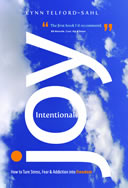Won't More Money Will Solve All My Problems?
 Friday, July 15, 2011 at 3:28AM
Friday, July 15, 2011 at 3:28AM  14 Comments
14 Comments  "If I just had more money, my problems would be solved." According to Brad Klontz." (author of academic study, "Money Beliefs and Financial Behaviors: Development of the Klontz Money Script Inventory," published in The Journal of Financial Therapy) most Americans fall into this money belief pattern.
"If I just had more money, my problems would be solved." According to Brad Klontz." (author of academic study, "Money Beliefs and Financial Behaviors: Development of the Klontz Money Script Inventory," published in The Journal of Financial Therapy) most Americans fall into this money belief pattern.
Our self-worth and our net-worth are very intertwined in American culture and our money beliefs are for the most part unexplored and below the surface of awareness. Have you ever overreacted to a financial situation like your spouse asking you something about the household finances and wondered, "What just happened?" I know I have. That reaction is tied to your unexplored money beliefs, habits, attitudes and patterns.
The Klontz Study says there are four categories of "money scripts": money avoidance, money worship, money status and money vigilance.
Those of us who avoid money distance ourselves from money. (I used to, but no more). They stick their head in the sand, may abuse credit cards, believe they don't deserve to have money and can sabotage themselves and not understand why.
Then there's a money worship group that believe more money or a windfall will solve all my problems. They are status oriented. They will use credit cards to buy to impress others. Anxiety and status can cause people in this group to take financial risks.![]() Understanding and exploring your money beliefs and how these affect the financial stress in your life and how you make financial decisions is life changing. Every money coaching client I've worked with has made belief and attitude shifts in the middle of the coaching process because of the light bulbs of awareness that occur. That's exciting and empowering.
Understanding and exploring your money beliefs and how these affect the financial stress in your life and how you make financial decisions is life changing. Every money coaching client I've worked with has made belief and attitude shifts in the middle of the coaching process because of the light bulbs of awareness that occur. That's exciting and empowering.
Klontz doesn't let people off the hook regarding the homes they bought and couldn't really afford. He says don't blame Wall Street, but "...what led you to buy a house you couldn't afford?" I don't believe in letting the banks off the hook though.
To understand your money attitudes, beliefs and behaviors more read Mind Over Money by the Klontz's or my favorite: Money Magic by Deborah Price.
 Lynn Telford-Sahl tagged
Lynn Telford-Sahl tagged  economic stress,
economic stress,  money,
money,  money fears,
money fears,  money problems,
money problems,  money stress,
money stress,  shopping,
shopping,  stress and anxiety,
stress and anxiety,  women and business,
women and business,  women in business
women in business









